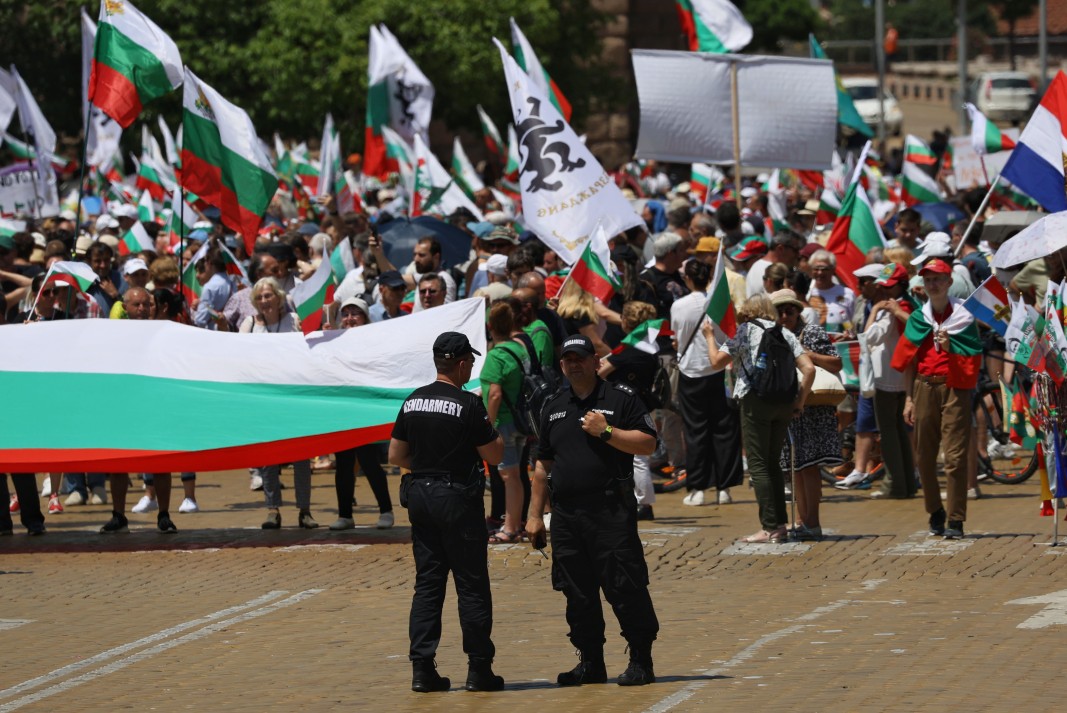It’s official—Bulgaria is now the 21st country in the eurozone. From 1 January 2026, the euro will become the legal tender, although levs will still be accepted for another month.

While the EU voted overwhelmingly in favour of Bulgaria joining the eurozone, there were concerns within the country. In recent months, there have been protests, including on the day of accession. Opinion polls show that the majority of Bulgarians are still not convinced that replacing the lev with the euro is the best option. Some oppose the euro in general, while others argue that 1 January 2026 is too soon to adopt it.
A vox pop conducted by our reporter Ivan Gergov reveals the mood among residents of the capital.
Which feeling prevails—hope or concern?

Vasil is a young man who works in the technology sector and is politically active. He supports the introduction of the euro mainly for geopolitical reasons:
‘I am in favour of the euro for two reasons: first, it is the last step in our European integration, and second, because it weakens Vladimir Putin’s influence in the Balkans.’

Alexander is also a young man involved in trade. He is firmly against the introduction of the euro. To explain why, he delves into financial details:
‘The base interest rate will now be set by the European Central Bank, and it is currently higher. Banks will have a free hand to lend to borrowers across Europe, and this will automatically raise interest rates because the money that is currently tied up—around 80 billion levs—will be available to lend across Europe. And anyone who wants a mortgage—if the APR (annual percentage rate) has been 3% until now, it will become 4–5–6%. Current interest rates will also rise. I, for example, have a mortgage. I have no option.’
Elena works in the state administration. She supports keeping the lev for patriotic and aesthetic reasons, but she is also afraid of price hikes:
‘I don’t want us to adopt the euro as our currency. I want to keep the Bulgarian lev; it’s better that way. I also like our banknotes—the Bulgarian lev with the lion on it—and I like the design. Besides, some things will definitely become more expensive. Shops already have price tags in euros at the top and levs at the bottom. Older people and other inattentive people, as well as young people who have their minds on other things, will get confused.’

Sergei is a doctor with several decades of experience. He is now of retirement age but still practising. Although he supports the eurozone, he has also noticed a rise in prices. However, he believes that the increase is not due to the euro.
‘It’s because of some traders’ obsession with getting rich quick, and because of widespread ignorance and fearmongering. That’s why prices are rising.’
Vasil Vasilev is a retired lecturer who taught at the Military Academy in Sofia for many years. He is adamant that now is not the right time to introduce the euro in Bulgaria, weighing up the pros and cons.
‘The negatives outweigh the positives, although there are some advantages. I agree that we should adopt the euro within the next five to ten years. At the moment, however, we do not meet the criteria. Everything that is being done is fabricated by those in power. They are pandering to temporary European elites. I believe that within five or six years, all European leaders will be gone. Furthermore, Bulgaria is losing its sovereignty and the Bulgarian lev.’
Ultimately, our survey revealed nothing new: Bulgarians are divided. Not only with regard to accession to the eurozone, but also with regard to a number of other important societal issues. Perhaps this is where politicians could play a role—showing through their actions that unity can be achieved if the end results are positive.

‘Many Bulgarian citizens have concerns, and we must respond to them,’ said European Parliament President Roberta Metsola in response to a question from BNR correspondent Irina Nedeva in Strasbourg. According to Metsola, Bulgaria has shown incredible commitment to the EU. She cited the country’s membership of the Schengen area as an example of the benefits of eurozone accession. ‘We must counter fears with facts and honest debate,’ Metsola said categorically.
Bulgaria’s National Assembly rejected President Rumen Radev’s veto on the amendments that expand the powers of the special commercial administrator of Lukoil, reported BNR’s correspondent Maria Fileva. The MPs from the ruling majority, supported by..
President Rumen Radev has vetoed the legislative amendments related to the appointment of a special commercial administrator in the Lukoil refinery in Burgas. The head of state said that the amendments undermine the legal order in..
Convulsions Before Multipolarity — a Time When Illusions Are Sacred and Truth Is Heresy is the title of a new book that will be officially presented in early November in Sofia. It explores the agony of a unipolar world, an era of geopolitical..

+359 2 9336 661
